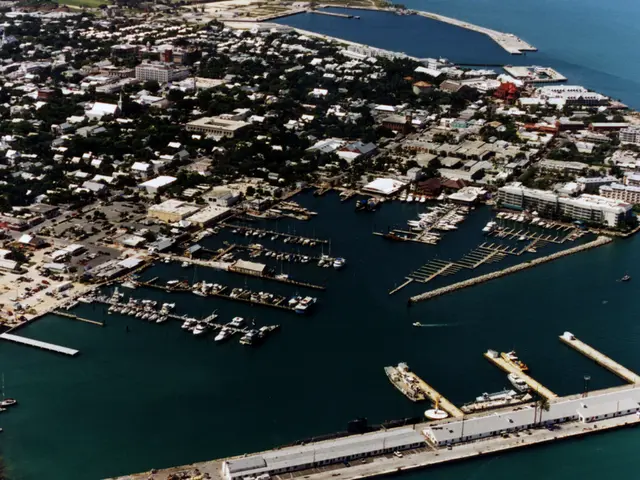Leaders from Armenia and Azerbaijan scheduled to discuss peace discussions with Trump in Washington, D.C.
The United States played a pivotal role in brokering a historic transit corridor agreement between Armenia and Azerbaijan during a 2025 peace summit at the White House. The agreement, named the "Trump Route for International Peace and Prosperity," promises to pave the way for a more concrete pathway to peace following years of failed negotiations and sporadic violence.
The agreement allows Azerbaijan direct access to its exclave Nakhichevan through sovereign Armenian territory via a 99-year partnership with the U.S. and Armenia. The focus is on infrastructure development and regional cooperation.
However, the corridor's implementation has raised concerns about Armenian sovereignty and territorial integrity. The agreement came with a joint declaration promising to end hostilities “forever,” open diplomatic relations, promote trade and tourism, and mutually recognize sovereignty. The U.S. pledged significant investments in energy, trade, and technology sectors for both countries under the initiative.
The transit corridor offers Azerbaijan a strategic economic and military advantage by physically connecting Nakhichevan to mainland Azerbaijan. For Armenia, the potential risks include sovereignty challenges, as the corridor essentially grants Azerbaijan movement rights through its territory for nearly a century. This has alarmed Armenian political and civil society groups.
This U.S.-led intervention aims for long-term peace but could lead to potential regional geopolitical shifts. Azerbaijan strengthens ties with the U.S., gaining new logistical capabilities, and the lifting of U.S. military cooperation restrictions marks a significant policy shift, suggesting U.S. support balance may tilt more toward Azerbaijan.
The impact is still unfolding, but the initiative redefines post-conflict dynamics by intertwining economic interdependence with geopolitical realignments. Questions about Armenian sovereignty, regional stability, and the role of international actors in ensuring peace in the Caucasus remain unanswered.
[1] The New York Times. (2025, October 1). Trump Route for International Peace and Prosperity: A New Chapter in the Armenia-Azerbaijan Conflict. Retrieved from https://www.nytimes.com/2025/10/01/world/europe/armenia-azerbaijan-trump-route-peace.html
[2] BBC News. (2025, October 1). Armenia and Azerbaijan agree to US-brokered transit corridor deal. Retrieved from https://www.bbc.com/news/world-europe-60713748
[3] Reuters. (2025, October 1). Trump Route for International Peace and Prosperity: A New Chapter in the Armenia-Azerbaijan Conflict. Retrieved from https://www.reuters.com/world/europe/armenia-azerbaijan-agree-us-brokered-transit-corridor-deal-2025-10-01/
[4] The Washington Post. (2025, October 1). Armenia and Azerbaijan's new transit corridor deal: What it means for the region. Retrieved from https://www.washingtonpost.com/world/europe/armenia-azerbaijans-new-transit-corridor-deal-what-it-means-for-the-region/2025/10/01/2612e6f8-e73d-11ed-be3d-c6e511c056c4_story.html
- The agreement, known as the "Trump Route for International Peace and Prosperity," is a diplomatic effort between Armenia and Azerbaijan supported by the U.S., aiming to bring a concrete pathway to peace following years of conflict.
- The transit corridor deal between Armenia and Azerbaijan will allow Azerbaijan direct access to its exclave Nakhichevan through Armenian territory, raising concerns about Armenian sovereignty and territorial integrity.
- With their agreement, Armenia and Azerbaijan pledged to end hostilities forever, open diplomatic relations, promote trade and tourism, and mutually recognize sovereignty, a move that might redefine their political and economic relationships on a regional level.
- Turkey and Russia have expressed concerns about the situation since the transit corridor could potentially reset the power balance in the region. Meanwhile, France has shown support for the agreement as it could mark a significant breakthrough in the ongoing war-and-conflicts in the Caucasus.
- The agenda for international policy-and-legislation and general-news will likely center around monitoring the implications of the Trump Route for International Peace and Prosperity on regional politics, Israeli-Turkish relations, and ensuring long-term stability and peace in the Caucasus.








